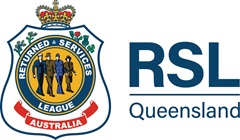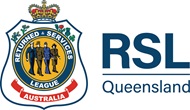
5 transferable Defence skills for your civilian CV
21 September 2021- Ideas & info
Leaving the ADF? Many Defence skills can be transferred to the civilian job market.
Learn more about the Employment Program
Planning your transition to the civilian workforce? If you’re worried about starting a new career from scratch, keep in mind that many skills are transferable between Defence and civilian employment.
RSL Queensland’s Employment Program Manager Teegan Crump says leadership, planning, problem solving with critical thinking, communication, and values driven are among the most important transferable skills.
“The Prime Minister's Veterans' Employment Program identifies these core skills,” she says.
“Then if you delve down into what service people were in, what rank they held and what roles they undertook, that's going to give you even more transferable skills.”
To help you make the most of your Defence experience for civvy street, these are the top five transferable skills:
Leadership
Leadership is required across all areas of Defence, making it one of the most valuable transferable skills for former service members to call out in their civilian job search.
Teegan says it’s important to demonstrate real examples of how you applied leaderships skills while in service.
“With Defence, obviously there’s a ranking system with different team sizes and things like that,” she says.
“So, you can show leadership experience from leading teams and working together to achieve different goals and outcomes, depending on what your mission was.”
By showing potential employers your ability to lead, you’ll make yourself more attractive as a candidate.
Planning
When demonstrating your planning skills, Teegan recommends specifying the types of planning you did while in Defence.
“Planning is important in a lot of different spaces,” she says.
“If you worked in project management, there would have been a need for future planning and working out the scope of the project, like resourcing and budgeting.”
She also says you could call out your experience with risk mitigation.
“A lot of planning in Defence has to do with risk mitigation with a workplace health and safety focus, as Defence has a huge focus on safety. For example, identifying different situations that might have been a risk and forward planning for different scenarios that could occur because of that risk.”
Problem solving with critical thinking
Regardless of rank or role, all Defence members are expected to solve problems with critical thinking. Highlighting the often-complicated nature of problem solving in Defence could help you prove your proficiency with this skill, says Teegan.
“At the different levels of Defence, you're given bits of information – like a brief – that's just relevant to your level, your security clearance, all of those sorts of things. You go on and you get that job done, and then you let your superior know if there's anything you are concerned about. So, situational awareness is a key skill that is instilled in each person.”
Civilian employers will be more likely to hire someone with experience in managing complex problems, because who wouldn’t want that kind of expertise on their team?
Communication
Many civilians may not realise that Defence members are often excellent communicators. To ensure potential employers recognise your communication skills, Teegan says to explain how your time in Defence enhanced your ability to communicate clearly.
“It’s really about knowing your audience, pitching whatever your messaging is at the right level,” she says.
“So, if you're talking to one of your peers, you're going to be really detailed and really drill down into the specifics of what you need to do. If you're talking to a manager, you might leave out some of the lower-level details that aren't as important, but if you're talking to a senior officer, you're going to be really concise and straight to the point.”
Helping employers understand the vital role communication skills play in Defence and how you’re poised to apply those skills in a civilian setting will give you a chance to set yourself apart from other applicants.
Values driven
Veterans are known for their strong values, and this perception could help you succeed out in the civilian world. According to Teegan, values like loyalty, self-discipline, and perseverance are often associated with Defence members.
“Veterans have a really strong work ethic and are dedicated to what they do,” she says.
“They are driven by mission and purpose.”
So, in addition to transferring your skills from Defence to your post-service career, be sure to bring your values along for the ride too.
We’ve helped more than 400 veterans secure meaningful employment after Defence.
If you’re looking for civilian employment opportunities, the RSL Employment Program supports veterans in their search for meaningful employment. Learn more about the RSL Employment Program.
Want to stay informed? Subscribe today and get the latest news, services, events and more direct to your email inbox.
Loading

